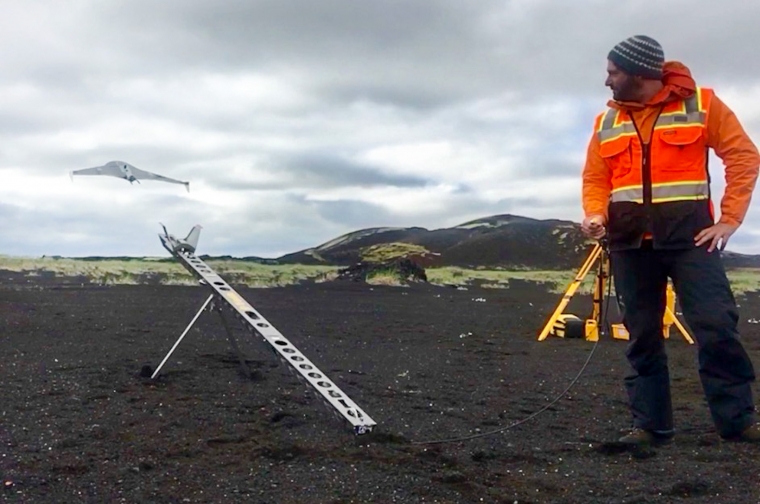
RAVEN
About
Rover–Aerial Vehicle Exploration Network
A team of scientists led by LPL’s Christopher Hamilton, an associate professor, are gearing up to send drones on exploration missions across a vast lava field in Iceland to test a next-generation Mars exploration concept. Hamilton is the principal investigator on a project that has been awarded a $3.1 million NASA grant to develop a new concept combining rovers and unmanned aerial systems, commonly known as drones, to explore regions of the red planet that have been previously inaccessible.
These new Rover–Aerial Vehicle Exploration Networks will be tested in Iceland to explore volcanic terrains similar to those observed on Mars. RAVEN adds an entirely new approach to NASA’s paradigm of planetary exploration, which traditionally has centered around four steps, each building on the scientific findings of the previous one: flyby, orbit, land and rove, according to Hamilton. The first spacecraft sent to a previously unvisited body in the solar system commonly executes a flyby pass to collect as many data as possible to inform subsequent robotic missions, which consist of another space probe placed into orbit, then a lander, which studies the surface in one place, and, finally, a rover built to move around and analyze various points of scientific interest.
Faculty
RAVEN Faculty

Christopher Hamilton
Associate Professor
Astrobiology, Earth, Lunar Studies, Photogrammetry, Planetary Analogs, Planetary Geophysics, Planetary SurfacesOther Researchers
RAVEN Researchers

Nathan Hadland
PTYS Graduate Student
Astrobiology, Earth, Planetary Analogs, Planetary Surfaces
Michael Phillips
Researcher/Scientist
Astrobiology, Photogrammetry, Planetary Analogs, Planetary Surfaces

